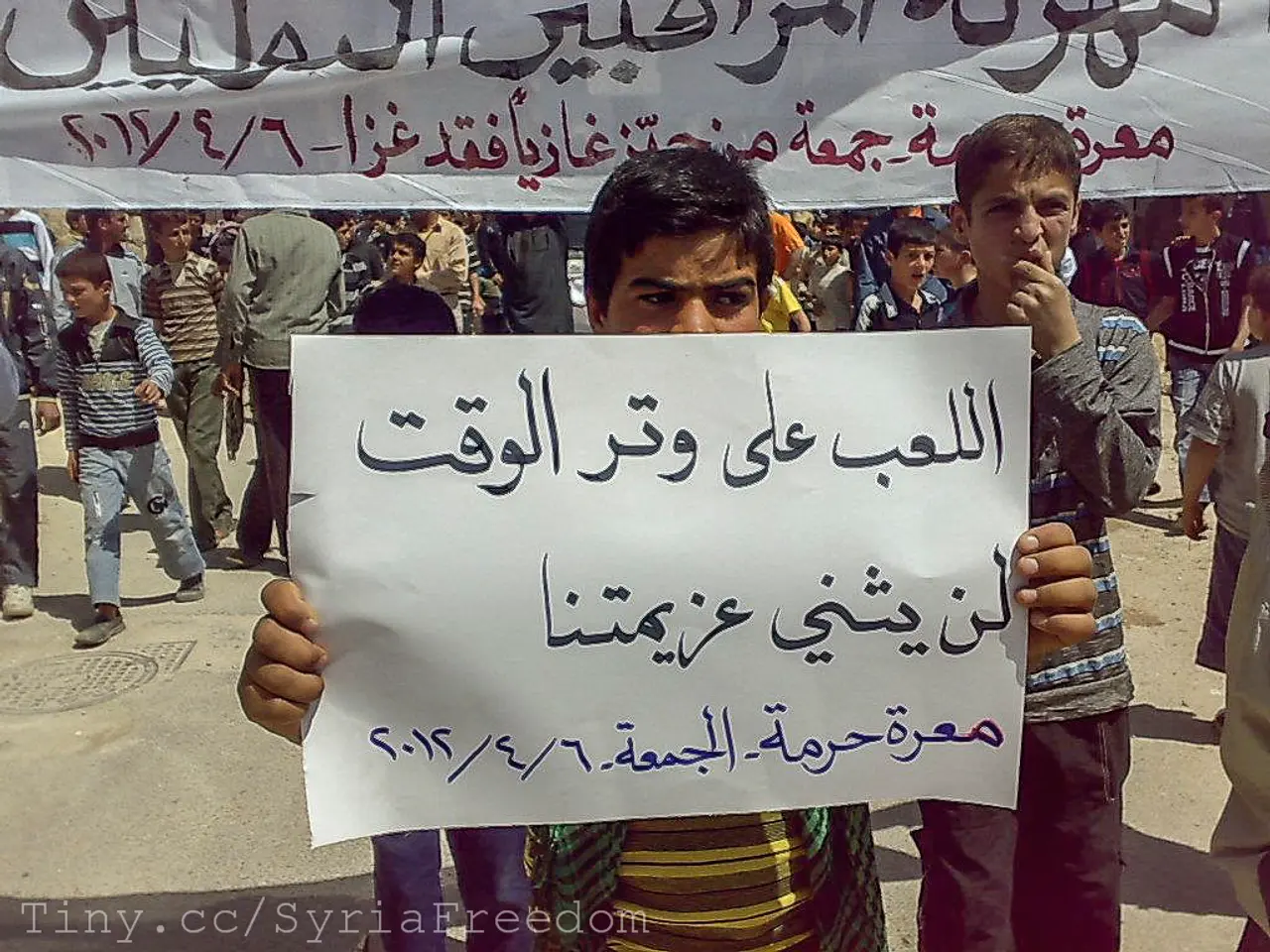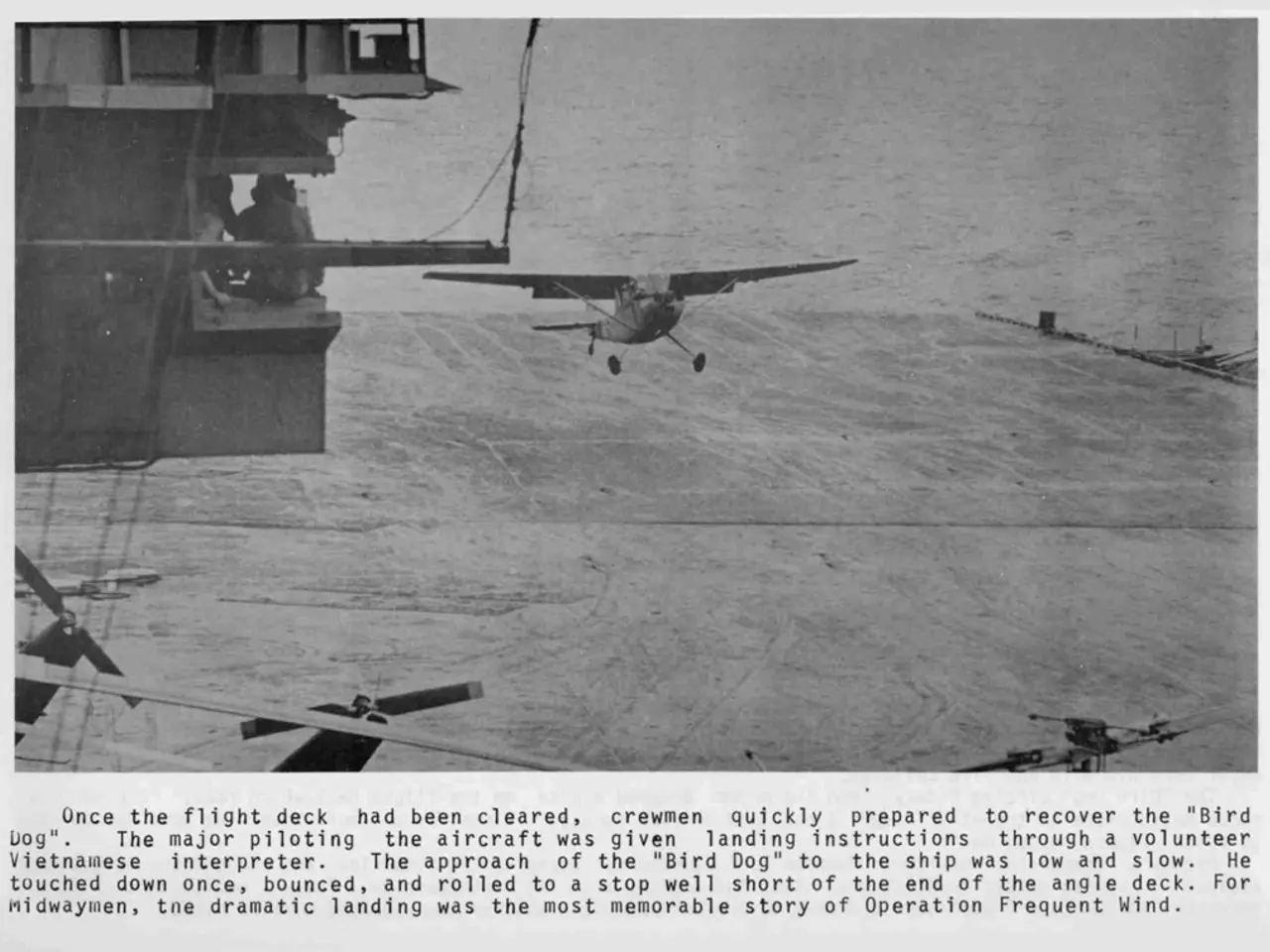Conflict researchers perceive Israeli weapons cessation as a potential signal, while historians offer criticism
In a notable political move, Germany has announced a partial halt of arms exports to Israel, marking a significant shift in its policy towards the Middle Eastern nation. This decision comes in response to growing concerns over Israel's military actions in Gaza, particularly the planned occupation of Gaza City [1][2].
Historically, Germany has been a staunch supporter of Israel, driven by a sense of historical responsibility stemming from the Holocaust. However, this policy adjustment underscores a tension between maintaining this traditional alliance and addressing international humanitarian and political concerns related to the conflict in Gaza [1][2].
Chancellor Friedrich Merz emphasized Israel's right to self-defense and the goal of disarming Hamas, but underlined the challenges posed by intensified military actions to achieving hostages’ release and peace negotiations [2][3]. The decision has been met with mixed reactions, both within Germany and internationally.
Within Germany, the partial arms embargo has sparked debate, particularly from within Merz’s own political party, with critics arguing that the decision risks weakening an important alliance with Israel and complicating Germany's foreign policy objectives [3][4]. On the other hand, Israeli historian Moshe Zimmermann has welcomed the halt of arms exports to Israel, while historian Michael Wolffsohn criticizes the move [1][2].
Wolffsohn, a prominent commentator, argues that anyone who wants to achieve peace in the region should supply Israel with weapons. He believes that the Israeli military is mainly dependent on its own production and US production, and that Germany is overestimating its importance in the context of arms deliveries [1].
In contrast, Thorsten Bonacker, a conflict and peace researcher at the University of Marburg, finds the partial halt of arms exports to Israel by the German federal government a remarkable political signal. Bonacker sees the decision as a preventive measure to avoid criticism that the federal government is distancing itself from Israel [1].
The halt of arms exports to Israel is also a symbolically important decision, according to Bonacker. He believes the federal government is preventing criticism that it is aligning itself with those who want to recognize Palestine as a state and put pressure on the Israeli government [1].
Bundeskanzler Friedrich Merz emphasized Israel's right to defend itself against Hamas terrorism, a stance interpreted by Bonacker as a sign that the federal government continues to support Israel in principle [1]. Germany is the second most important arms exporter to Israel, making this decision a significant political shift [1].
Wolffsohn believes the Israeli government is politically stubborn and that the federal government is not living up to its own claim of a conflict-free foreign policy strategy. He suggests that Germany needs drones, a missile shield, support in combating Islamic terrorism, and IT expertise from Israel in return for arms deliveries [1].
In summary, Germany's partial halt of arms exports to Israel is a significant political move that challenges Israel's military policies from one of its closest allies. This decision has been perceived internationally as a call for restraint and humanitarian consideration, while domestically in Germany, it has provoked political debate and criticism [1][2][3][4].
References: [1] Deutsche Welle (2023). Germany halts arms exports to Israel over Gaza conflict. [online] Available at: https://www.dw.com/en/germany-halts-arms-exports-to-israel-over-gaza-conflict/a-63001112 [2] The Jerusalem Post (2023). Germany halts arms exports to Israel over Gaza conflict. [online] Available at: https://www.jpost.com/israel-news/germany-halts-arms-exports-to-israel-over-gaza-conflict-676874 [3] The Guardian (2023). Germany halts arms exports to Israel over Gaza conflict. [online] Available at: https://www.theguardian.com/world/2023/mar/01/germany-halts-arms-exports-to-israel-over-gaza-conflict [4] The New York Times (2023). Germany halts arms exports to Israel over Gaza conflict. [online] Available at: https://www.nytimes.com/2023/03/01/world/europe/germany-halts-arms-exports-to-israel-over-gaza-conflict.html
- The partial halt of arms exports to Israel by Germany, a traditionally strong ally of Israel, is a contentious issue in the realm of politics, policy-and-legislation, and general-news, as it represents a shift in Germany's approach towards the Middle Eastern nation, challenging Israel's military actions in Gaza.
- The decision to halt arms exports to Israel has sparked debate within Germany, particularly among various political parties, as some argue it risks weakening the alliance with Israel, while others view it as a necessary step to address international humanitarian concerns and maintain a conflict-free foreign policy.






